|
" As wavies and curlies, we tend to play the game of keeping hair clumps out of the drain on wash day. "
Why does curly hair shed "more"?Since we don’t brush our hair daily, many hair strands that fall out naturally throughout the day get caught up in other curls and therefore, it does not come out until it is time to wash and detangle. This is because the average person loses between 50-100 strands a day so if you don’t wash or brush until 3rd day hair you may be getting rid of around 300 strands! According to the American Academy of Dermatology, this is what is known as hair shedding. While some hair shedding should not be cause for concern, there can be a time when looking down at your drain becomes worrisome. There are different factors in life that can cause what is known as excessive shedding. First, know the difference between this and hair loss. What's the difference between hair shedding and hair loss? Hair shedding Hair shedding is a normal body function where some of the hair strands fall out to make room for new hair growth, you can lose between 50 to 100 strands a day--and sometimes even up to 150--and this is still considered normal, according to WebMD. You will grow back new hair to take the place of the hair that you are shedding. Hair shedding can also be seasonal, meaning you lose less hair in the summer months and start losing more hair in the fall and winter months. One common cause of excessive shedding is childbirth. Many mothers lose hair after giving birth, but not to fear as this pattern usually only lasts for a few months and then reverts to its normal rate. Other causes of excessive shedding are quick weight loss, stress, sickness or surgery, in which case it is best to see your doctor. Hair loss Hair loss is when the fallen hair fails to grow back. If you have hair loss you will start to notice either a bald spot or the look of your hair actually thinning as no new hair is growing in to replace the hair that you are losing. Hair loss can vary, some may lose hair gradually and slowly start to notice thinning at the top, while others may actually experience clumps of hair falling out. Hair loss can be caused by factors such as a poor diet, tight hair styles, stress, genetics, or a combination of these things. The good news: most hair loss issues can be treated. Consult with your medical doctor for professional advice. While there is no way to prevent normal hair shedding, there are ways to improve our hair's health and further prevent true hair loss by caring for ourselves from the inside out--this includes making sure our diet contains enough protein and iron, in addition to making sure we thoroughly cleanse the scalp on wash day. Also, don't forget to be gentle when creating a braided hairstyle or updo. Now you can wash your hair in peace knowing that although your hair shedding may clog your drain, it’s probably nothing more than your body making room for even more hair. If your hair loss exceeds the normal patterns that we have described here, be sure to seek the advice of a doctor to determine the cause and best course of treatment. (source) By Julyne Derrick
It probably won't surprise you that you're likely not shampooing your hair correctly. In fact, most of us make several mistakes every time we lather up. We don't spend enough time scrubbing our scalps, we don't rinse thoroughly and sometimes we skip the conditioner. And those are just a few things we're all doing wrong. In this article, I share exactly how to properly wash and condition hair (it should take you about 15 minutes max) so that you're left with hair so squeaky clean it will feel as if you just got a professional shampoo at a salon. My hair is a testament to these tricks actually working. Now that I wash my fine, oily hair correctly, I can go several days between shampoos (with the help of Klorane Dry Shampoo on Day 2). My hair has never been silkier, softer and just plain awesome. Now I just need to perfect my blow-drying technique and I'm set. Here are the 9 biggest mistakes people make when shampooing their hair (plus, how to fix them).... They Don't Wet Their Hair Thoroughly I recently read a comment from a celebrity stylist that stayed with me because I have probably broken this rule every time I've shampooed my hair. He said most people don't wet their hair thoroughly before applying shampoo. Every strand needs to be soaking wet in order to truly get clean. The good news is, it just takes about a full minute standing under the shower stream to ensure every strand is drenched. I can sacrifice that. They Use Too Much -- Or Too Little -- Shampoo Most people have no idea how much shampoo to use in the shower. I have a pump on my fancy bottle of Kerastase shampoo (I'm such a sucker) and I always pump it twice just out of habit. That's a lot of shampoo (probably about 3 tablespoons worth) that would plop into my palm. At $80 a bottle, I have been washing a lot of money down my bathroom drain. At the same time, using too little shampoo won't get your hair clean enough. Turns out there's a magic size when it comes to shampoo and it's all based on coins. For short hair, aim for the size of a nickel. For medium-length hair, aim for a quarter. If you have long hair, a half-dollar will do you. Squeeze the shampoo in your palm, and then using your fingers, apply the product to your hair starting at the scalp and crown. They Don't Focus Their Attention on the Scalp If you've ever had a professional shampoo at a salon, you know how much time they spend on your scalp. I always thought the long shampoo was really a head massage -- a luxurious perk that went along with the $200 bill for my fancy NYC haircut -- but it turns out scrubbing the scalp is a very important step in an effective shampoo. Most people (myself included) do not spend enough time scrubbing their scalps. From my research, experts agree we should scrub our scalps for at least 3 minutes. That's the magic number: 3 minutes. No matter your hair length or hair type, we should all be scrub, scrub, scrubbing our scalps with the pads of our fingers -- not our nails -- for 3 minutes. And we should do this in a brisk, circular motion. Now I will be the first to admit that 3 minutes is about 1 minute too long for me. I have tried to abide by this rule and I simply can't, so for those of you who, like me, have Shampooing Attention Deficit Disorder, I say do your best. In her article, "How to Shampoo Your Hair," About.com women's hair expert Kendra Aarhus explains that focusing your initial shampooing efforts on the scalp helps remove dirt, sebum and build-up that collects there. Spending 30 seconds to a minute on your scalp scrub as I used to do is like quickly running a mop over a dirty floor rather than scrubbing the surface of its grime. In fact, Aarhus recommends using this initial shampoo to focus only on the scalp, not the actual hair, which brings us to... They Don't "Rinse and Repeat" I always thought the directions on the back of every shampoo bottle to "rinse and repeat" was a bunch of BS meant to get us to buy more shampoo. Turns out some of us should rinse and repeat, especially those of you with long hair. If you have short or really fine hair, you can skip the R&R. It works like this: After you've scrubbed your scalp for 3 minutes, it's time to rinse. A quick 15-second rinsing should suffice. Then it's part 2 of the shampoo, only this time you'll be focusing your efforts on your hair, not your scalp. To do this, take about a dime-sized amount of shampoo and apply it to your hair. Focus on massaging the shampoo into your actual hair strands. You can spend as little as 20 seconds on this part or longer if you are a product junkie and you use lots of sprays, serums, mousse or gels. All these rules! I know. But it's no wonder that before I learned them I went through a bottle of dry shampoo a month to buy some time between shampoos. It turns out I was doing a half-assed job my entire life. Now that I know how to properly wash my hair, I'm washing it less often. And my guess is you will, too. They Don't Thoroughly Rinse the Shampoo Out of Their Hair If you're like me, you can't wait to get over the work part of your morning showers. I can stand there in a meditative state for a long time under the spray of water, especially in winter (oh the havoc I wreck on my skin!), but when it comes down to the actual work part of scrubbing my hair, I aim for fast and efficient. This means I typically whip through the rinse portion of my hair washing process. And likely, you do, too. Aren't we a fine bunch of sorry hair washers? It turns out we are doing more harm than good because it's actually shampoo that causes build-up on hair, not conditioners, according to the experts at NYC's Le Salon. This is why it's important to spend at least a full minute rinsing hair of shampoo before moving on to the next step. They Skip the Conditioner (and They Don't Apply it Properly) Yeah, I have fine hair and therefore I have always thought of conditioner as an "Evil, Grease-Causing, Weigh-Down-My-Hair-Even-More-Why-Don'tcha" product that belongs solely in the bathrooms of people with dry, coarse and/or frizzy hair. Well, it turns out I was wrong. Fine hair is susceptible to knots and tangles, which is one reason it's good to use conditioner even on fine, oily hair. The trick is to use conditioner only on the bottom 2/3rds of hair. Do not let the conditioner touch your scalp. Another mistake we tend to make is in applying conditioner because who knew there was a proper way? According to NYC stylist Eva Scrivo in her book, On Beauty by Eva Scrivo (buy it from Amazon, it's worth it), it's best to first squeeze hair of the excess water before applying a dime-sized amount of conditioner on the ends first and then working the product up the hair, applying more as you go. It's important to really work the conditioner into the hair. And while there's no need to let it sit on hair, unless it's a deep conditioning treatment, I recommend you let the conditioner work it's magic while you wash the rest of you and/or shave your legs. I have to admit, I was really skeptical about conditioning my hair, but now that I'm following the rules and using conditioner, my hair has never been softer and silkier. I rarely put it back in a ponytail anymore and it's lost all traces of frizz. Consider me sold. They Don't Comb Their Hair in the Shower I never knew those fine-toothed combs all the beauty writers tell us we should use to get out the tangles belonged in the shower. And I surely didn't know they were meant to be used while the conditioner was in the hair. According to this article I love on PureWow, it turns out if you want to avoid tangles and hair breakage (who doesn't?), brush conditioner through hair with a wide-toothed comb or a boar's bristle brush. PureWow reports it's also a myth that you must use a wide-toothed comb, a brush will work as long as you use it on hair before the conditioner is rinsed out. I have to admit that I skip this step, but I recommend you try it if you suffer from tangles and hair breakage (I don't). They Get Lazy and Don't Thoroughly Rinse The Conditioner Out of Their Hair I have never been guilty of this because I have never used conditioner. Yeehaw! But it turns out many people with dry hair make this mistake a lot. They think leaving a little bit of conditioner on their hair will make it softer and easier to manage. This is a myth. Conditioner will just sit on hair, making it look dull and flat, according to Scrivo. Scrivo (who is not only brilliant, but my friend, smile) says women with dry, coarse hair are better off using a leave-in conditioner instead. They Don't Finish Off Their Hair With a Cold Water Rinse It turns out that rumor you've read over the years in magazines that rinsing your hair with cold water will make it shinier is actually....true. Scrivo writes, "It's a good idea to finish your shower with a cold rinse. A hot steamy shower raises the cuticle, while a colder temperature makes it contract. A flatter cuticle has a smoother surface that reflects light and look shinier." I will always be guilty of this because I'm a cold water wuss, unless I'm showering outside in 100-degree heat. But if you are a brave soul who is thoroughly committed to having shiny hair, then you should go ahead and move that tap to the left, or right, or whatever direction leads to "cold. Really, really cold." Happy shampooing my friends! Bad news for WEN lovers: The hair-loss saga isn't over. According to a statement released by the FDA, there have been 127 reports filed by consumers regarding hair loss, hair breakage, balding, itching, and rash associated with the use of WEN by Chaz Dean Cleansing Conditioner products.
Throughout the duration of the investigation, the FDA urges consumers to be aware of any reactions they may experience in association with the use of the products, and if they do experience a reaction, to stop using the product and consult with a dermatologist or other health care provider. You can also report your reaction to the FDA for further investigation. This news comes roughly six months after initial reports of severe damage and significant hair loss as a result of using the products were filed by 200 women in a class-action lawsuit against the brand. In a statement provided to NBC News in December 2015, WEN, Guthy-Renker and Chaz Dean refuted these claims and said there was no scientific evidence to support them. According to the FDA's statement, experts have not yet been able to pinpoint what is in the sulfate-free cleansing conditioners that could be causing such damage, but they're now calling on WEN to provide any data that might help them better understand the reports of hair loss associated with the use of the products. We received the following statement from Chaz Dean Inc.: “The Wen by Chaz Dean family cares deeply about everyone's hair health. We encourage people who inquire about any hair issues to seek qualified medical assistance because it is a complex topic. WEN by Chaz Dean is safe, and millions of bottles have been sold over the last 16 years. We have consistently cooperated with the FDA and will continue to do so. We love our brand and our customers. Through this experience, we have learned that there is an immediate need for more education about hair health and common hair concerns in the industry, unrelated to WEN. There is no evidence that WEN by Chaz Dean products cause hair loss, and the ingredients and formulations meet or exceed safety and quality standards set by the cosmetics industry. We stand behind them.” Stay tuned to NewBeauty for updates! Here's a blog post from a site I follow: Wen's Woes Won't Go Away - Over 17,000 Complaints to the FDA 8/7/2016 Postpartum Depression in MenGuys go through a lot that they don’t talk about and, even though they’re not the ones who give birth, up to 10% of new dads experience postpartum depression, according to research from the Center for Pediatric Research at the Eastern Virginia Medical School. When men are embarrassed and hide their feelings, it only delays the help they need.
Additional new research shows that one difference with men is that the depression tends to develop more gradually over the course of the baby’s first year. Men are misdiagnosed for that reason and also because the symptoms come from a pool of issues that mirror any type of depression specifically characteristic of men, according to postpartummen.com:
In addition to prescribing antidepressants, some doctors offer a somewhat still controversial alternative called Deep Transcranial Magnetic Stimulation (Deep TMS). This non-invasive, FDA-cleared technology places a cushioned helmet over a patient’s head and generates brief magnetic fields at an amplitude similar to that used in an MRI. Whether you’re a man or a woman talking to a doctor about depression, make sure that you report everything going on in your life. Doctors can connect the dots for an accurate diagnosis only when they have all of the facts. It is still very disturbing to read this news after all that has been done to try make this process safer for you and me. I also couldn't believe when I read this: "Another issue is that hair salon owners – who could help drive change – are in no rush to do so because they are making good money providing illicit treatments." "Some will even add formaldehyde, which can be purchased wholesale for as little as Brazilian real BRL3.70 per kilo to simple shampoos themselves." Consumers want the service done as cheaply as possible and "shop" coupon deal all the time. Good quality, well regulated straightening products are not inexpensive. The service cannot be done properly with a few passes of a very hot flatiron. People also fail to realize the safety hazards to themselves (you) and the hairstylist (that would be me) when the product used is cheap and/or altered. And then complain when the results aren't what they expected. Don't go cheap when it comes to how you present yourself to the world. You are investing in yourself so make the investment. Brazil struggles with illegal hair straightening products |
Hair by BrianMy name is Brian and I help people confidently take on the world. CategoriesAll Advice Announcement Awards Balayage Barbering Beach Waves Beauty News Book Now Brazilian Treatment Clients Cool Facts COVID 19 Health COVID 19 Update Curlies EGift Card Films Follically Challenged Gossip Grooming Hair Care Haircolor Haircut Hair Facts Hair History Hair Loss Hair Styling Hair Tips Hair Tools Health Health And Safety Healthy Hair Highlights Holidays Humor Mens Hair Men's Long Hair Newsletter Ombre Policies Procedures Press Release Previous Blog Privacy Policy Product Knowledge Product Reviews Promotions Read Your Labels Recommendations Reviews Scalp Health Science Services Smoothing Treatments Social Media Summer Hair Tips Textured Hair Thinning Hair Travel Tips Trending Wellness Womens Hair Archives
January 2025
|
|
Hey...
Your Mom Called! Book today! |
Sunday: 11am-5pm
Monday: 11am-6pm Tuesday: 10am - 6pm Wednesday: 10am - 6pm Thursday: By Appointment Friday: By Appointment Saturday: By Appointment |
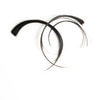
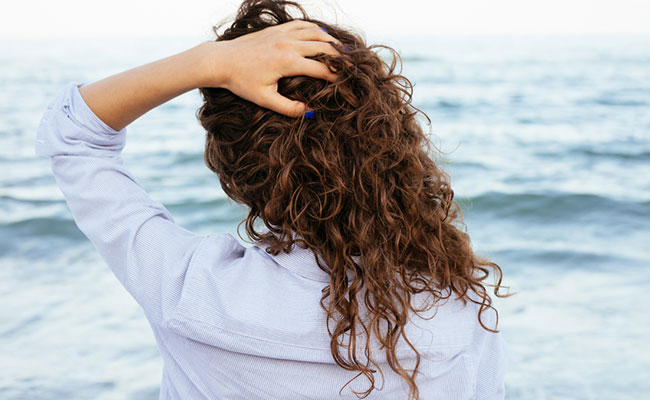
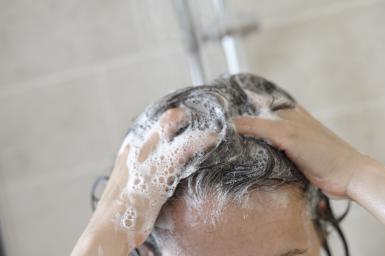
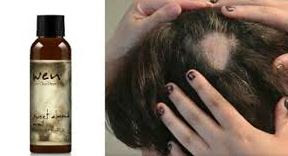
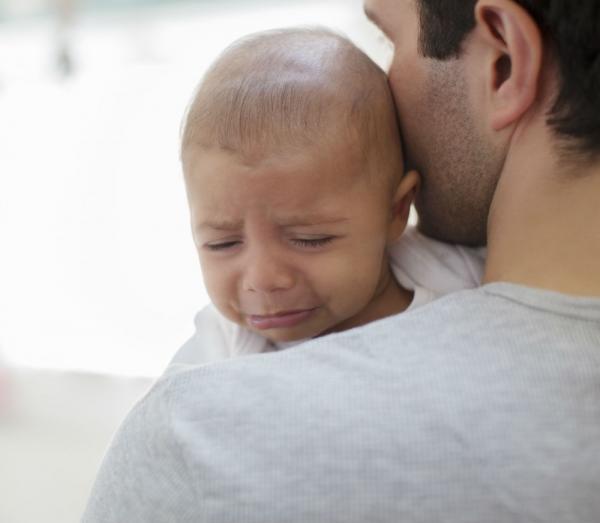

 RSS Feed
RSS Feed